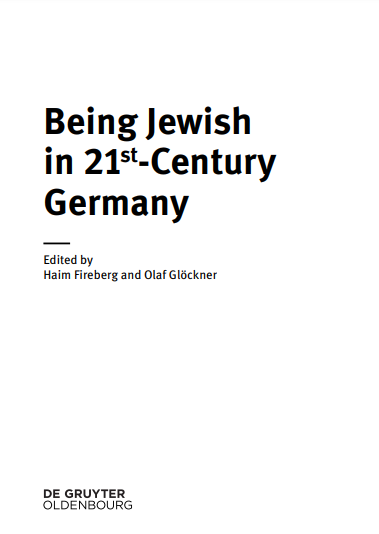Being Jewish in 21st-Century Germany
Editorial: De Gruyter
Licencia: Creative Commons (by-nc-nd)
Autor(es): Glockner, Olaf y Fireberg, Haim
An unexpected immigration wave of Jews from the former Soviet Union mostly in the 1990s has stabilized and enlarged Jewish life in Germany. Jewish kindergartens and schools were opened, and Jewish museums, theaters, and festivals are attracting a wide audience. No doubt: Jews will continue to live in Germany. At the same time, Jewish life has undergone an impressing transformation in the second half of the 20th century– from rejection to acceptance, but not without disillusionments and heated debates. And while the ´new Jews of Germany,` 90 percent of them of Eastern European background, are already considered an important factor of the contemporary Jewish diaspora, they still grapple with the shadow of the Holocaust, with internal cultural clashes and with difficulties in shaping a new collective identity. What does it mean to live a Jewish life in present-day Germany? How are Jewish thoughts, feelings, and practices reflected in contemporary arts, literature, and movies? What wi
[Berlin: 2015]
Compartir:
Una vez que el usuario haya visto al menos un documento, este fragmento será visible.


